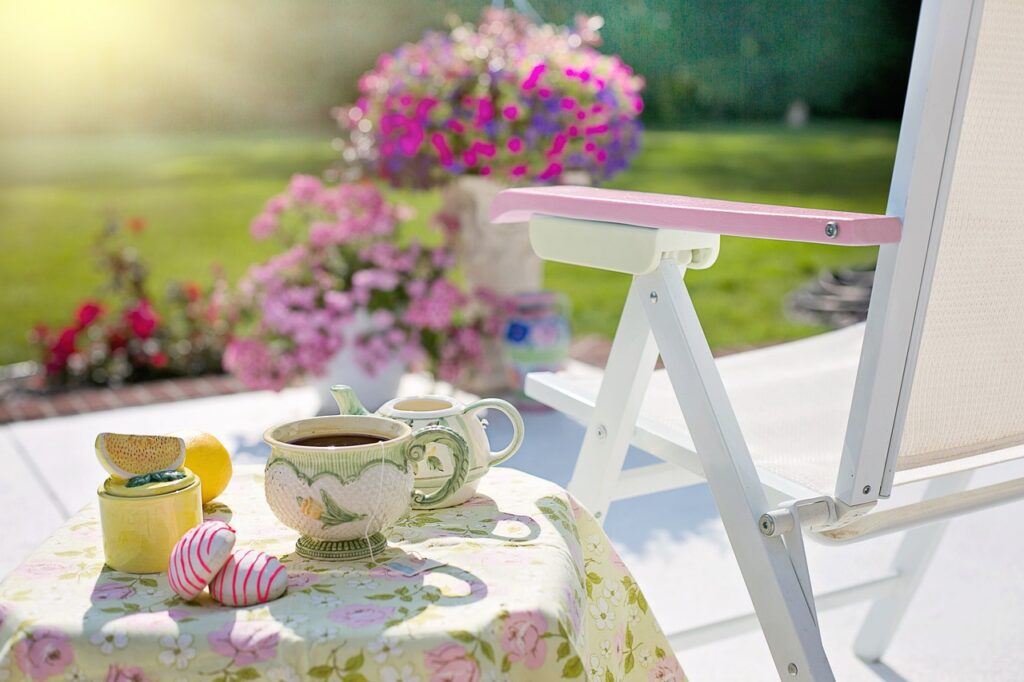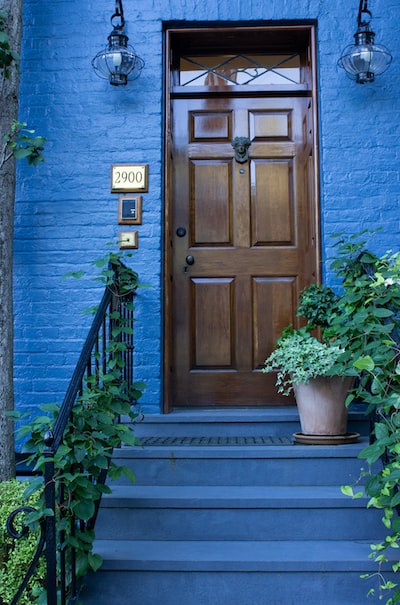This is our comprehensive guide on how to choose the right porch flooring material for your home. The porch is an integral part of any house, providing a space to relax, entertain, and enjoy the outdoors.
Selecting the appropriate flooring material is crucial as it not only enhances the aesthetics but also ensures durability and functionality. In this article, we will walk you through the factors to consider when choosing porch flooring material and provide valuable insights to help you make an informed decision.
Understanding Your Options: Different Porch Flooring Materials Explained
Contents
- 1 Understanding Your Options: Different Porch Flooring Materials Explained
- 2 FAQs About How to Choose the Right Porch Flooring Material
- 2.1 Q1: What factors should I consider when selecting porch flooring material?
- 2.2 Q2: How do I determine the durability of a particular flooring material?
- 2.3 Q3: Can I install any flooring material on a screened-in porch?
- 2.4 Q4: Are there any eco-friendly porch flooring options available?
- 2.5 Q5: How do I maintain and clean different porch flooring materials?
- 3 Conclusion on How to Choose the Right Porch Flooring Material


When it comes to porch flooring, there is a wide range of materials available, each with its own unique characteristics, benefits, and considerations. Here, we’ll explore the most popular porch flooring materials to help you understand their pros and cons.
Wood
Wood is a classic and timeless option for porch flooring, offering natural beauty and warmth. However, different wood species have different durability levels and maintenance requirements. Consider the following wood options:
- Pressure-Treated Pine: An affordable and widely available option that offers resistance to decay and insects. It requires regular sealing or staining to maintain its appearance.
- Cedar: Known for its natural resistance to decay and insects, cedar provides a beautiful aesthetic and requires minimal maintenance. However, it is a more expensive option.
- Tropical Hardwoods: Exotic woods like Ipe, Cumaru, and Tigerwood are incredibly durable and resistant to rot and insects. They are pricier than other wood options but offer unmatched longevity.
Composite
Composite porch flooring is a popular alternative to wood, offering a low-maintenance and durable solution. It is made from a combination of wood fibers and recycled plastic. Here are some key points to consider:
- Composite boards are available in various colors and finishes, mimicking the look of real wood.
- They are resistant to rot, insects, and fading, making them a long-lasting choice.
- Composite flooring requires minimal maintenance, such as regular cleaning, and does not need staining or sealing.
PVC
PVC porch flooring is a synthetic material made from polyvinyl chloride. It offers several advantages for porch applications:
- PVC flooring is highly resistant to moisture, stains, and fading, making it an excellent choice for areas exposed to the elements.
- It is available in a wide range of colors and styles, allowing for customization to match your home’s aesthetic.
- PVC flooring is low-maintenance, requiring only occasional cleaning with soap and water.
Concrete
Concrete is a versatile and durable option for porch flooring. It can be left plain or enhanced with various finishes, such as staining, stamping, or painting. Consider the following aspects:
- Concrete can be customized to mimic the look of other materials, such as brick or natural stone, at a lower cost.
- It is highly durable and can withstand heavy foot traffic and harsh weather conditions.
- Proper installation and sealing are essential to prevent cracking and maintain its longevity.
Stone or Tile
Stone or tile flooring can add a touch of elegance and sophistication to your porch. Consider the following options:
- Natural Stone: Options like granite, limestone, or slate offer a timeless and luxurious look. However, they require proper sealing and maintenance to prevent stains and damage.
- Porcelain or Ceramic Tile: These tiles come in a wide range of styles and patterns, allowing for endless design possibilities. They are durable, easy to clean, and resistant to moisture.
FAQs About How to Choose the Right Porch Flooring Material
Here are some common questions homeowners have when choosing porch flooring materials:
Q1: What factors should I consider when selecting porch flooring material?
A: When choosing porch flooring material, several factors should be considered:
- Climate and Weather Conditions: Consider the climate in your area and choose a material that can withstand the local weather conditions, such as heavy rain, snow, or extreme temperatures.
- Durability: Evaluate the durability of the flooring material, especially if the porch will experience high foot traffic or be exposed to heavy furniture and outdoor elements.
- Maintenance Requirements: Determine the level of maintenance you are willing to commit to. Some materials require regular sealing, staining, or cleaning, while others are low-maintenance.
- Aesthetics: Consider the overall design and style of your home. Choose a flooring material that complements the architecture and enhances the curb appeal of your property.
- Budget: Determine your budget and explore different flooring options that fit within your financial constraints.
Q2: How do I determine the durability of a particular flooring material?
To determine the durability of a porch flooring material, consider the following:
- Material Composition: Research the properties of the material, such as its resistance to rot, moisture, insects, and fading.
- Warranty: Check if the manufacturer offers a warranty for the flooring material. A longer warranty period often indicates higher durability.
- Reviews and Testimonials: Read reviews and testimonials from other homeowners who have used the same flooring material. Their experiences can provide valuable insights into its durability over time.
Q3: Can I install any flooring material on a screened-in porch?
A: The choice of flooring material for a screened-in porch depends on the specific requirements of the space. However, certain flooring materials may be better suited for screened porches due to their ability to withstand moisture and temperature changes. For example, options like composite, PVC, or tile are popular choices for screened-in porches as they offer durability and resistance to elements.
Q4: Are there any eco-friendly porch flooring options available?
A: Yes, there are eco-friendly porch flooring options available for those looking to reduce their environmental impact. Consider the following options:
- Sustainable Wood: Look for wood products certified by organizations like the Forest Stewardship Council (FSC), which ensures responsible forest management.
- Bamboo: Bamboo is a fast-growing and renewable material that can be used as an alternative to hardwood flooring.
- Recycled Materials: Some flooring materials are made from recycled content, such as composite decking made from recycled plastic and wood fibers.
Q5: How do I maintain and clean different porch flooring materials?
A: The maintenance and cleaning requirements vary depending on the porch flooring material. Here are some general tips:
- Wood: Regularly clean the surface and apply sealant or stain every few years to protect it from moisture and UV damage.
- Composite: Clean the surface with mild soap and water periodically to remove dirt and debris. Avoid using abrasive cleaners or pressure washers.
- PVC: Simply clean the surface with soap and water. PVC flooring is low-maintenance and does not require staining or sealing.
- Concrete: Sweep or use a leaf blower to remove debris regularly. Periodically clean the surface with a mild detergent and water. Reseal the concrete as needed to maintain its appearance and prevent staining.
- Stone or Tile: Follow the manufacturer’s recommendations for cleaning and maintenance. Use a pH-neutral cleaner to avoid damaging the surface. Seal natural stone periodically to protect it from stains.
Remember to consult the specific maintenance guidelines provided by the manufacturer for your chosen porch flooring material.
Conclusion on How to Choose the Right Porch Flooring Material
Knowing how to choose the right porch flooring material is essential to create a beautiful and functional outdoor space that meets your needs and complements your home’s style. Consider factors such as durability, maintenance requirements, budget, and desired aesthetics when making your decision.
Whether you opt for wood, composite, PVC, concrete, or stone, each material has its own benefits and considerations. By understanding your options and considering your specific requirements, you can make an informed choice and enjoy your porch for years to come.






